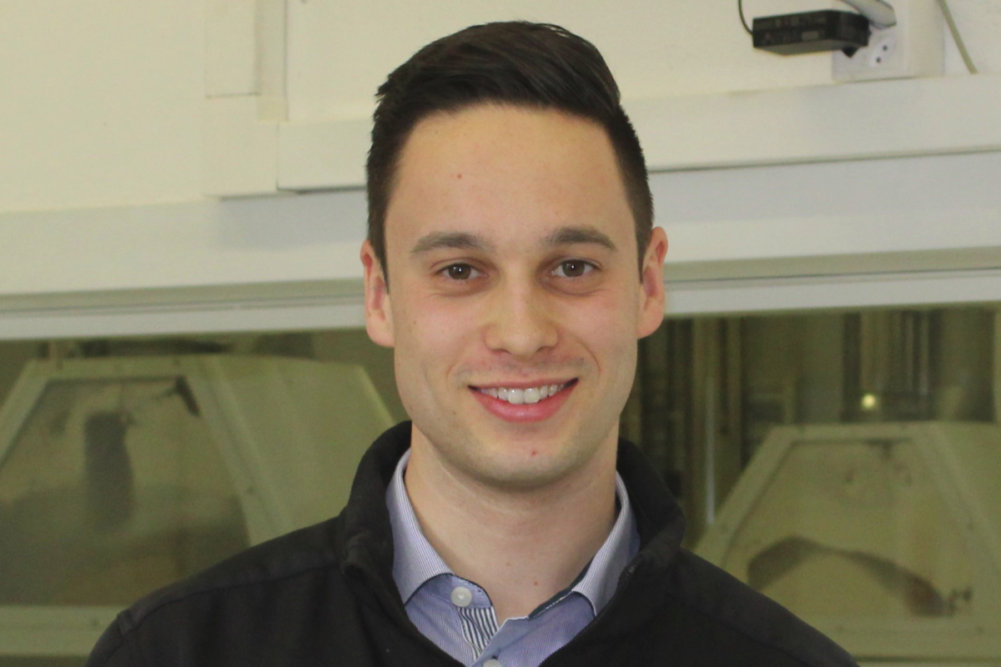Although he’s only 23 years old, Philipp Marquart is already a much-accomplished veteran of the flour milling industry.
In 2014, at the age of 17, he completed his apprenticeship as a miller at the Grüninger family business before undertaking further training at the Milling School in St. Gallen, Switzerland, followed by attendance at the Master School in Stuttgart, Germany, where he won the “Best International Young Miller” award.
In November 2017, at the age of 20, Marquart took over as production manager of the Grüninger Mühlen in Flums, in the uplands of St. Gallen.
World Grain recently interviewed Marquart, who is the youngest production manager in the Swiss milling industry.
WG: At age 23, do you have sufficient experience for your current role?
MARQUART: Yes, actually I do. I’ve been working for six years already in the milling industry and I already have quite a bit of experience. I have gained important knowledge that I know how to use. Also, I think that in a developing industry, too much routine could be a hindrance. I follow my principle: In order to create the possible, the impossible must be tried again and again. I’m open to innovation and want to learn about, and try out, new technologies. It’s important that I don’t have tunnel vision — I want to look out for what else is happening.
WG: What innovations and new products have you come across at the Grüninger mill?
MARQUART: Where automation and monitoring are concerned, there’s already a lot happening. Thanks to Bühler’s automation, the Grüninger mills have been running in single-shift operation for 10 years — eight hours actively operated, 16 hours run on automatic. This means there is a quality check around the clock. If any deviations are detected, the system alerts the miller on duty. What I found when I joined the company has given me a good starting point for further innovations.
WG: What innovations have you introduced since then?
MARQUART: We further developed and modernized our automated quality inspection for flour using NIR technology. We were also the first mill in the world to introduce Bühler’s Mercury plant control system. It enables us to monitor every process and coordinate incoming and outgoing goods, thus ensuring complete traceability. Then, as a pilot partner of Bühler, we equipped five of our 17 grinding and milling passages with new roll sensors. We hope that this will provide us with information about temperature and vibration, and about power consumption related to the entire milling process. The next step is to work out the implications from this data. Among other things, we would like to compare two factors, machine wear versus yield, and explain at what point a higher yield is more costly than a lower one.
WG: What digital projects are you working on next?
MARQUART: We’re currently looking into how to link our laboratory to production. Up to now, the laboratory has been completely separate from the mill. By linking it to production, we would save an entire work step. To put it simply, in the future, the Mercury control system will automatically find the correct parameters for the correct grinding process based on the laboratory values.
WG: You are committed to digitizing Grüninger mills. What do you see as the advantages of this?
MARQUART: The more we digitally link and control our individual processes, the more we can simplify standard processes. That will also reduce the number of potential sources of error. The bottom line is that all of this leads to consistent quality and yield, savings in energy consumption and, ultimately, optimized working conditions
WG: What other possibilities do you see for further digitization at Grüninger Mühlen?
MARQUART: Our company doesn’t just do production. Individual divisions are currently still working with different systems. We need to bring all the processes together from intake, the whole production, quality assurance, warehousing up to delivery into smart systems that work with each other and are compatible with the Mercury control system. This will simplify our work and lead to continuous improvements.






